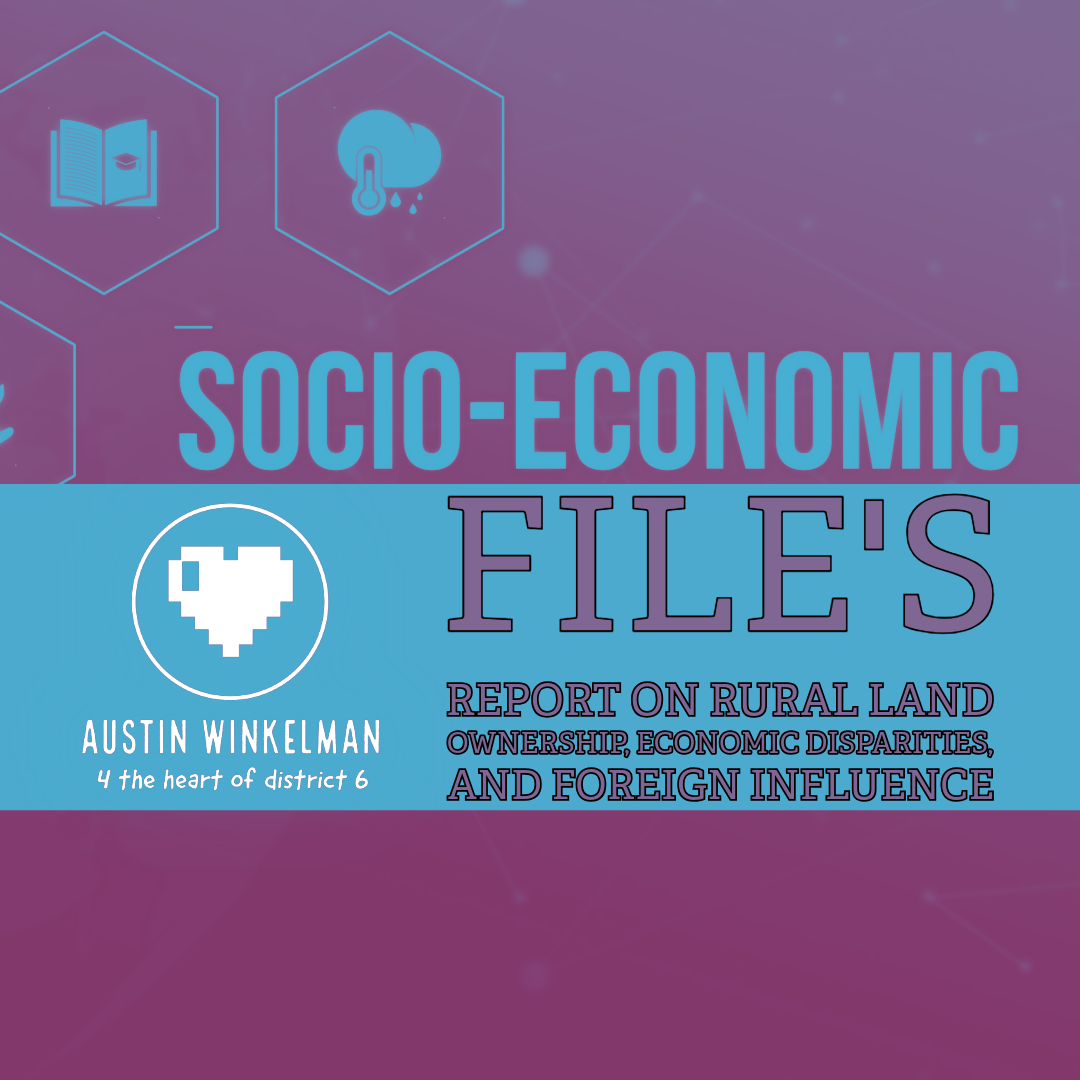Search is now available for the website, it is getting massive.
Use this if you are looking for specific topics titles or use keywords like:
Climate, Democracy, Education

Report on Rural Land Ownership, Economic Disparities, and Foreign Influence
The issue of rural land ownership in the United States is becoming increasingly complex, shaped by a combination of foreign investment restrictions, economic pressures on small farmers, and growing wealth disparities. Recent legislative efforts have sought to curb foreign ownership of U.S. land, but loopholes such as citizenship-by-investment programs and corporate acquisitions continue to allow external influence. At the same time, economic hardship and rural income disparities are forcing small farmers to sell their land, often to large agribusinesses, investors, and foreign-controlled entities operating through domestic fronts. This report explores the intersection of these issues and their broader implications for economic stability, food security, and national policy.
Foreign Land Ownership Restrictions and Their Limitations
Between January 2023 and July 2024, at least 22 U.S. states enacted laws restricting foreign ownership of land, particularly targeting buyers from adversarial nations such as China. These states, including Alabama, Arkansas, Florida, Texas, and Tennessee, tend to lean Republican, suggesting that national security and economic protectionism are key motivations behind these policies. However, the effectiveness of these restrictions is questionable due to several loopholes:
Pitch in
Your donation goes directly to essentials like printing literature, digital outreach, and community events. Even small amounts make a huge difference.
This campaign isn’t about me, it’s about us. It’s about proving that working people can take on wealthy interests and win. With your support, we can bring fresh ideas, accountability, and real representation to Congress.
Join in by donating Via our Website
or
Act blue
Just do $1.00






